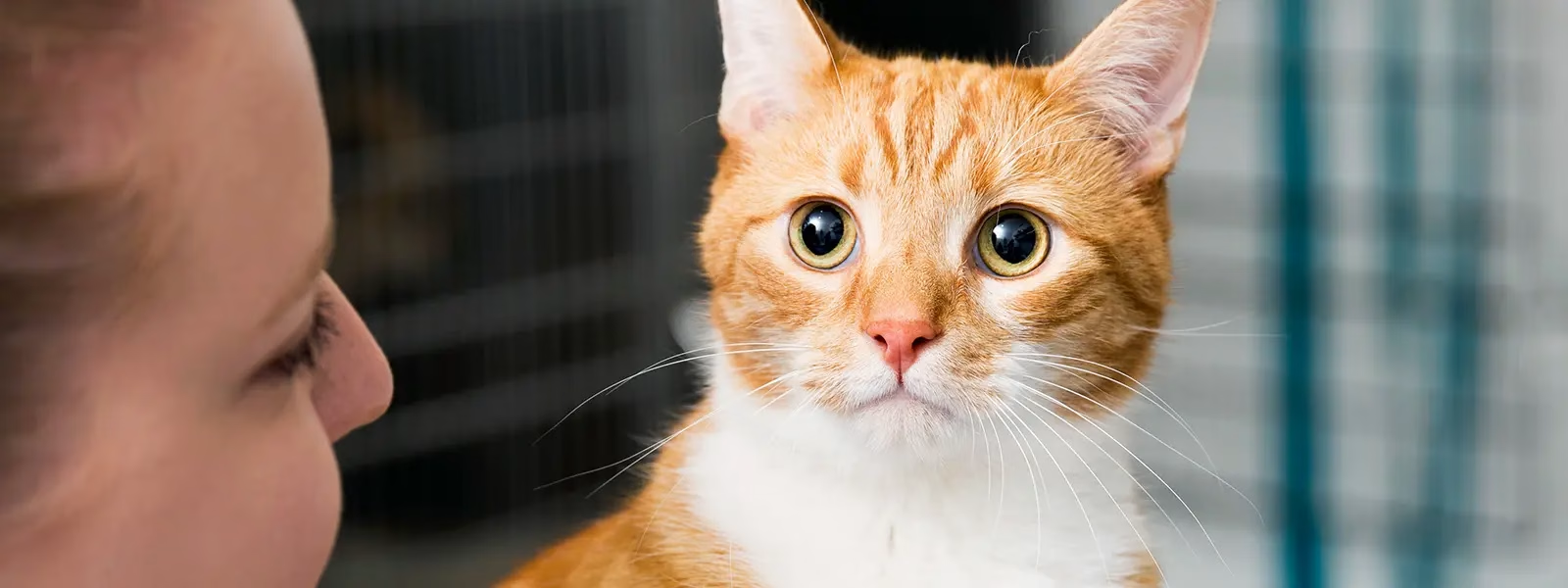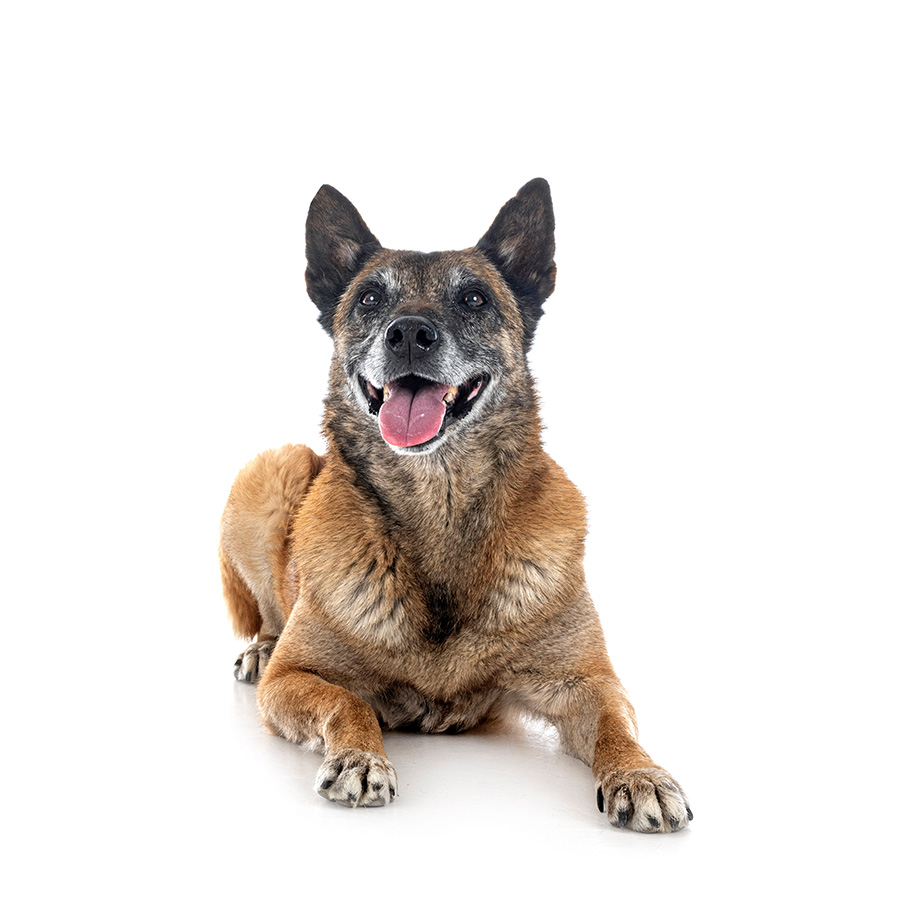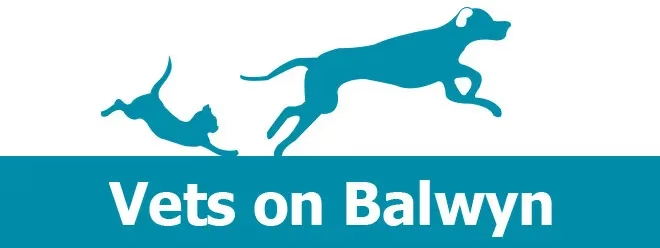Weight Management
Around 40% of dogs and 30% of cats in Australia suffer from weight problems.

The most common causes of this condition include overfeeding, unhealthy snacks and a lack of exercise. Weight issues can also be symptomatic of a chronic health condition such as hypothyroidism.
Whilst you might think those extra kilos your cat and dog are carrying look cute, they can predispose your pet to developing a number of very serious health conditions, lessen their quality of life, and even reduce their lifespan.
Some of the health conditions obese and overweight pets are predisposed to include:
- Diabetes
- Osteoarthritis
- Spinal problems
- Cruciate injuries
- Higher anaesthetic risk
- Exercise intolerance
- Heat intolerance
- Skin problems
If you have an overweight pet but are unsure what to do about it, call us to organise a weight management discussion with one of our knowledgeable vets. Our veterinarians have plenty of experience helping pets shed excess weight and will be able to provide a weight management regime that is tailored to the needs of your animal.

Top five tips for weight loss in dogs
- Make the energy input less than the output
Perhaps the most obvious way to help your pet burn calories is to decrease the amount of calories you feed them and increase the amount of calories they use so that their body is forced to tap into stored energy. The key to this is remaining firm in the face of your hungry looking dog and not giving into those puppy eyes. - Replace kibble and tinned food with vegetables
Replacing dry food with cooked vegetables is an alternative way to reduce your pet’s calorie intake without reducing the amount of bulk in their diet. Replacing between a quarter to a third of your pet’s regular dry food with cooked vegetables helps your dog feel full and allows you to avoid pleading puppy eyes. - Get rid of carbs
Make sure you are buying dog food that is high in fibre and protein but low in fat and carbs. If you enjoy making your own dog’s food, replace grains with vegetables. - Stop giving your pet human food
Human food is not made for dogs. Giving your dog a slice of cheese is the equivalent of you eating the entire block. If you want to treat your pup, make healthy choices for them and provide something high in lean animal protein like a piece of skinless chicken breast. - Try meal replacements
Raw bones are great for promoting dental health and keeping your pet entertained, but they should be used as meal replacements rather than extra treats if you’re trying to help your dog normalize their weight.Remember, not all dogs will tolerate bones, so speak to your vet for advice.

Top five tips for weight loss in cats
- Feed them less
Just like with dogs, reducing your cat’s calorie intake is the most straightforward way to promote weight loss. Make sure you do this in consultation with your vet so the reduced portion sizes are suitable for your cat’s breed and size. - Curb grazing
Cats love to graze on their food throughout the day and this habit is fine, except when owners fill up the bowl every time it gets low. If your cat overeats, having a bowl perpetually full of kibble is a recipe for weight gain. Avoid this by measuring out the correct portion of kibble for the day, and don’t fill up the bowl again if it gets low. Your cat will learn to adjust their grazing to smaller portions. - Drop the carbs
As carnivores, cats don’t really need a lot of carbohydrates in their diet. In fact, cats eating a diet high in carbs often suffer from weight issues and are predisposed to developing a number of chronic health conditions including diabetes. Make sure you are feeding your cat a diet that is high in protein and fiber but low in fat and carbs. - Don’t feed your cat human food
Cats really aren’t meant to eat anything other than lean protein and their digestive systems can’t handle highly processed human food. If you want to give your cat a treat, buy some high protein treats designed for cats or give them a raw chicken neck to promote dental health.
Need an appointment?
When your pet’s unwell, or it’s time for a general check-up or vaccination, your furry friend is in good hands. Book online to see our expert Vets on Balwyn!
Contact Details
Opening Hours
Monday – Friday: 8am – 7pm
Saturday: 9am – 2pm
Sunday: Closed
Vets on Balwyn Feedback
EXCELLENTTrustindex verifies that the original source of the review is Google. What an outstanding experience I have had at Vets on Balwyn.! Super easy online booking, wonderful and warm reception staff in clean and calm environment. I saw Vivienne Tan who was so lovely, compassionate and understanding of my hyper anxious Jack Russell and she was gentle, kind, friendly and very patient with him. There was no pressure to rush my consultation and she offered so many solutions and great advice. I have been a pet owner for many years and this was truly a unique and exceptional experience. I highly recommend this practice to everyone. They have a client for life.Posted onTrustindex verifies that the original source of the review is Google. A great Vet clinic with very friendly and professional staff. We wouldn't take our cats anywhere else.Posted onTrustindex verifies that the original source of the review is Google. Truly one of the best vet clinics — if not the best. We are so incredibly grateful to the amazing team here. A heartfelt thank you to Dr. Michelle and Dr. Vivienne — words can’t fully express how much we appreciate everything you’ve done for our beloved kitties, Leon and Luna. You’ve treated them with such kindness, patience, and genuine compassion. You're not only knowledgeable but also incredibly honest, which we deeply value and respect. Knowing our cats are in such caring and trustworthy hands gives us so much peace of mind. And not to forget the wonderful nurses and support staff — every single one of you has been so warm, welcoming, and understanding. You’ve helped create such a comforting, positive environment, and we always feel supported and cared for during every visit. Even though the clinic is a bit of a drive, especially during peak hours, it’s always worth the trip — because we know our fur babies are getting the best care possible. From the bottom of our hearts, thank you. We wholeheartedly recommend this amazing team to anyone looking for vets who are not only skilled but genuinely, honestly care.Posted onTrustindex verifies that the original source of the review is Google. Awesome staff and helpful team. Vet Dr Michelle was amazing. I would take my Malinois anywhere else.Posted onTrustindex verifies that the original source of the review is Google. Dr Kevin and the team at Vets on Balwyn and Vets on Parker have looked after my fussy fur babies (x3) for 10+ years. Dr Kevin is compassionate and I trust him with their care both in life and euthanasia. Wouldn’t go anywhere else.Posted onTrustindex verifies that the original source of the review is Google. Excellent veterinary service. Dr Campbell clearly passionate about delivering high standard of care.Posted onTrustindex verifies that the original source of the review is Google. Vets on Balwyn has been looking after Samson for about 10 years now. All the staff, nurses and vets, are courteous, responsive and professional. Thank you all for your great service all these years. My special thanks to Dr Vivienne who is very knowledgeable, caring , patience and professional. We are very grateful to you for your excellent care provided to Samson.Posted onTrustindex verifies that the original source of the review is Google. A very caring and professional team at Vets in Balwyn. We visited Dr Michelle Rasool today and she was very patient and encouraging with my little dog, who is reactive when going to the vets. Dr Rasool is very experienced and explained everything as we went along so I understood and this will help with future visits. Im very pleased with our visit today.

